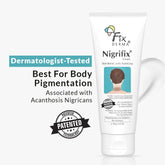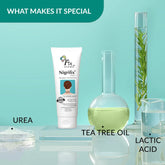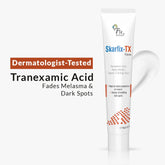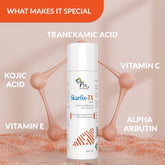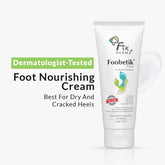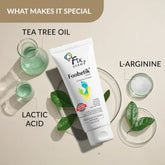The Ultimate Guide to Sunscreen: Protecting Your Skin All Year Round
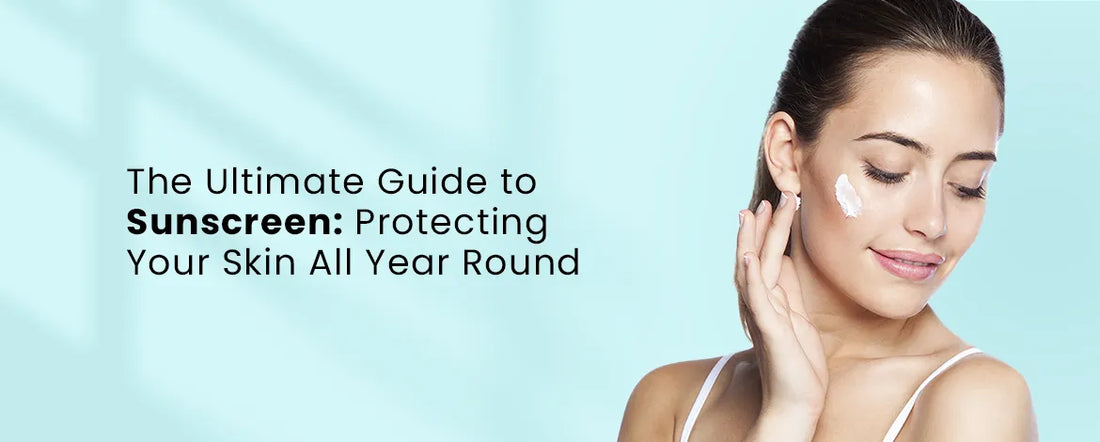
This National Sunscreen Day i.e., 27th May 2024, acknowledging the importance of sunscreen is of great importance. Sunscreen is an essential component of a good skincare routine, providing crucial protection against harmful UV rays. In this blog, we'll explore what SPF is, the differences between physical and chemical sunscreens, and whether you need sunscreen while working from home. We'll also discuss whether babies need sunscreen, how to choose the right sunscreen for your skin type, the pros and cons of different sunscreen forms, and address some common questions about sunscreen expiration and vitamin D absorption. Let's dive in!
What is SPF?
SPF, or Sun Protection Factor, measures a sunscreen's ability to protect the skin from UVB rays, which are the main cause of sunburn and can contribute to skin cancer.
- SPF 15 blocks 93% of UVB rays
- SPF 30 blocks 97% of UVB rays
- SPF 50 blocks 98% of UVB rays
Physical vs. Chemical Sunscreen
Physical Sunscreen: Also known as mineral sunscreen, it contains active mineral ingredients like zinc oxide or titanium dioxide. These create a physical barrier that reflects UV rays away from your skin. Physical sunscreens are effective immediately upon application and are less likely to cause skin irritation, making them ideal for sensitive skin.
Chemical Sunscreen: These contain organic (carbon-based) compounds like oxybenzone, avobenzone, and octinoxate. They absorb UV radiation and transform it into heat, which is then released from the skin. Chemical sunscreens need about 20 minutes to become effective after application.
Do You Need Sunscreen While Working from Home?
Yes, you do! Even if you're working from home, you're still exposed to UVA rays that can penetrate windows and cause skin damage. Blue light from screens can also contribute to skin aging. Applying sunscreen daily is a good habit to protect your skin from these indoor exposures.
Does My Baby Need Sunscreen?
Babies should not use sunscreen; instead, keep them out of direct sunlight and use protective clothing and hats.
How to Choose the Right Sunscreen
Apply hardinsunscreen and protect your skin from harmful UV rays. Try the wide range of sunscreens for all-round protection from UVA & UVB rays, blue light, and other harmful radiations. We also have different formulations for different skin types. Check them out below:
- For dry & sensitive skin: Shadow SPF 50 + Cream and Shadow SPF 30+ Cream
- For acne-prone and sensitive skin: Shadow SPF 50+ Gel
- For oily and acne-prone skin: Shadow SPF 30+ Gel and Shadow A-Gel SPF 30 Sunscreen
- For oily skin: Shadow SPF 50 Silicone Matte Cream
- Kids sunscreen: Shadow Kids SPF 30+ Lotion and Shadow Roll On SPF 50 Sunscreen for kids
- Lip balm with SPF: Shadow Lip Shield With SPF 50
- Body sunscreen: Shadow SPF 50 Body Lotion and Shadow Sunscreen Spray
- Tinted Sunscreen: Shadow Tinted Sunscreen With SPF 50
Stick, Spray, or Cream: Which is Better?
Each form of sunscreen has its advantages:
- Stick: Great for targeted applications and convenient for on-the-go use. Ideal for areas like the face and ears.
- Spray: Easy to apply on hard-to-reach areas. Ensure even coverage and avoid inhaling the product.
- Cream: Offers thorough and even coverage, suitable for dry and sensitive skin. Perfect for face and body application.
Does Sunscreen Expire?
Yes, sunscreen does expire. Most sunscreens have an expiration date on the packaging. Typically, they last about three years. Using expired sunscreen can result in reduced effectiveness, so it's important to check the date and replace old products.
Can Sunscreen Decrease My Absorption of Vitamin D?
Sunscreen can reduce the amount of UVB rays that reach your skin, which are necessary for vitamin D production. However, most people still get enough vitamin D through incidental sun exposure. If you're concerned, you can consider dietary supplements after consulting with your healthcare provider.
Sunscreen: An Ideal Hero for Our Skin - Benefits
Using sunscreen hardin offers numerous benefits:
- Prevents Sunburn: Shields your skin from painful and damaging sunburns.
- Reduces Risk of Skin Cancer: Decreases the likelihood of developing skin cancer, including melanoma.
- Prevents Premature Aging: Protects against wrinkles, fine lines, and other signs of aging caused by sun exposure.
- Maintains Even Skin Tone: Helps prevent sunspots and hyperpigmentation.
In conclusion, sunscreen is a vital part of skincare, regardless of your daily activities or skin type. By choosing the right sunscreen and applying it correctly, you can protect your skin from harmful UV rays and maintain a healthy, radiant complexion all year round. Don't forget to make sunscreen a staple in your skincare routine, and enjoy the benefits of well-protected skin!
